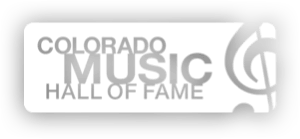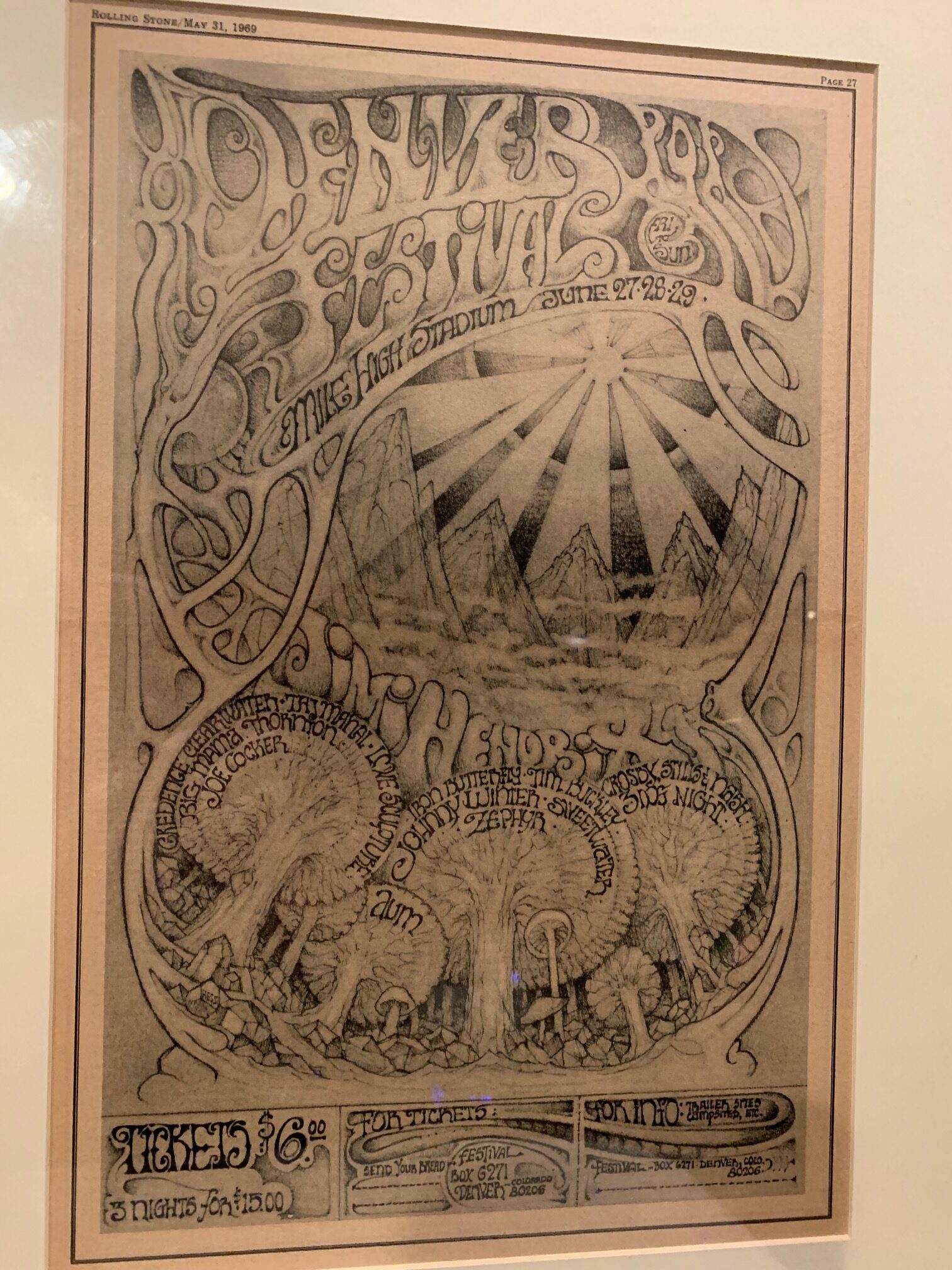The Denver Pop Festival
You probably know all about the Woodstock Music and Arts Festival which took place in upstate New York over the weekend of August 15-18, 1969. In addition to the enormity of the event–just shy of half a million people–the big budget movie and multiple soundtrack LPs ensured that the event and the brand would become shorthand for much that happened in the late 1960s.
However, did you know that Denver Rock Impresario and Colorado Music Hall of Fame inductee Barry Fey mounted a similar event at Mile High Stadium a full two months earlier?
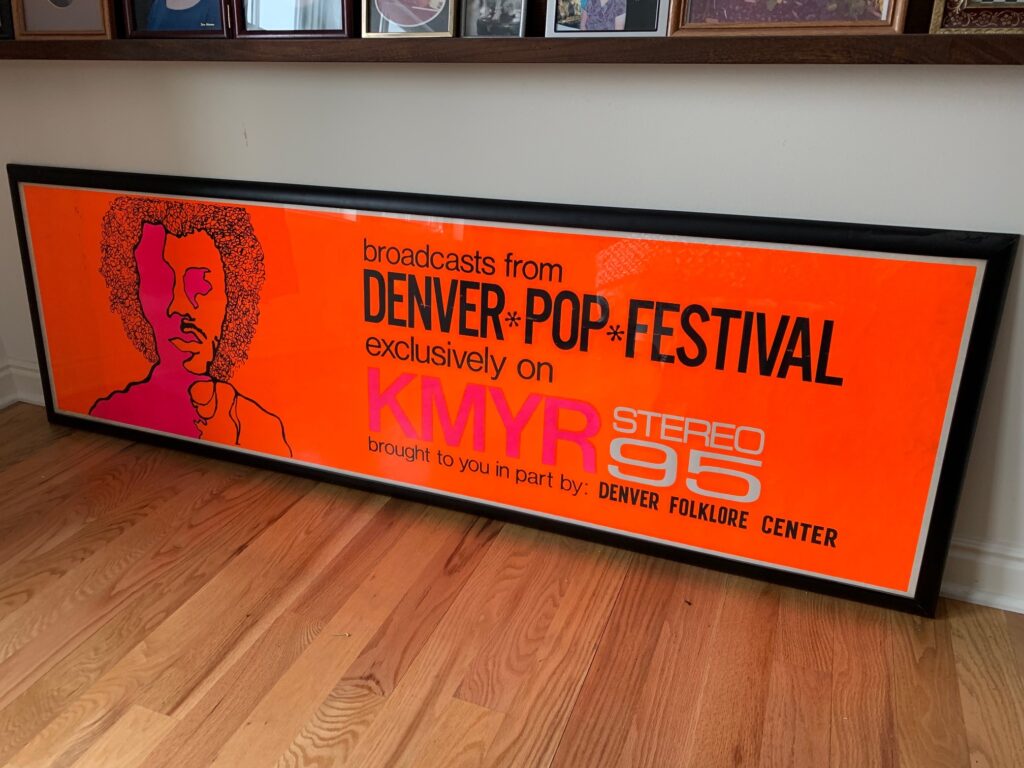
You may not, because it has largely been forgotten by history despite containing a number of history-making performances. Held over the weekend of June 27-29, 1969, Barry Fey assembled a tremendous line-up of bands to meet the growing demand for festivals. Estimates were 50,000 in attendance with a large contingency of ticketless hanging outside the gates. Over the course of the first two days, fans and Denver cops got contentious, causing the use of tear gas. These events led to the third day being announced as a free concert.
Musically, the festival was highlighted by what turned out to be the final performance of The Jimi Hendrix Experience. After their performance in Denver, bassist Noel Redding would exit the group. While the band that was seen at Woodstock still contained Experience drummer Mitch Mitchell, it was an entirely different sound.
I have heard tapes of the Denver Pop Festival, and The Experience delivered a scorching performance, as did Johnny Winter and Creedence Clearwater Revival. Also of note were two performances by Colorado Music Hall of Fame inductee Zephyr. The local heroes, featuring guitar genius Tommy Bolin, were scheduled for the 28th but were asked to return on the 29th because another band dropped out.
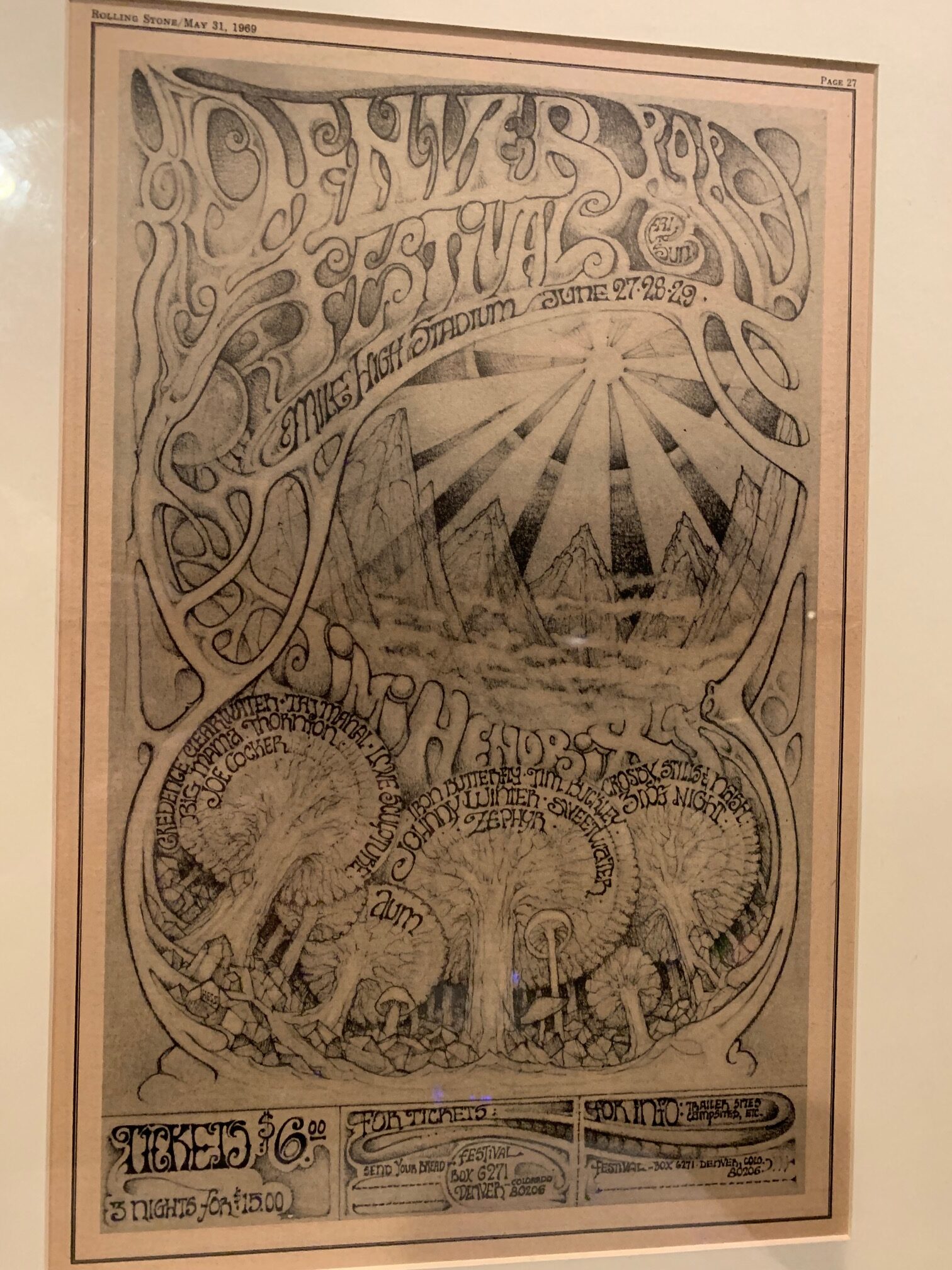
The 28th also featured an amazing set by Frank Zappa and The Mothers of Invention. Zappa’s known gimmick of teaching the audience to respond to his hand signals from the stage, prompting them to make funny noises, or stand up, or wave their hands in the air, has gone down in history as the start of what is now known as the stadium wave—a funny and possibly erroneous historical footnote. Funnier still is the audio recording of the event. After the Mothers’ set, the erstwhile recordist finds Mothers’ sax player Bunk Gardner in the audience and tries to interview him. The conversation devolves into the interviewer ranting about how terrible Iron Butterfly (playing during the interview) were. A real slice of authentic fan history. In total, 17 bands played over that weekend.
Mile High Stadium was built in 1948 and was called Bears Stadium until 1968. I remember calling it Bears Stadium (out there on the Valley Highway) until well into the 70s. It was the scene of countless football, baseball, soccer and even boxing events, as well as many concerts, until it was torn down in 2001. From The Denver Pop Festival to The Eagles, The Beach Boys, Bruce Springsteen, The Grateful Dead and Metallica, Mile High was the place to be in Denver for large outdoor concert fun.
What you see here are two rare posters. The black and white poster was the national advertising for the show. Aside from its evocative imagery, it is notable because few were made and most existing copies (like the one pictured here) are actually a full page ad removed from Rolling Stone magazine. The other, and even rarer poster is possibly a one-of-a-kind. It came from Denver Folklore Center founder and Colorado Music Hall of Fame inductee Harry Tuft. When he was getting ready to sell the Folklore Center, he asked me to help him sort his basement full of posters. This poster was unearthed then. (There are many other great items that came from that experience that I’ll be sharing in the future). This is such a striking poster not only because of its near-perfect condition, radiant color and Hendrix-ian image, but the specific connection to Denver institutions The Folklore Center and Denver radio station KMYR.
– Paul Epstein, Co-Chair, Colorado Music Hall of Fame; founder/former owner of Twist & Shout; music historian and archivist
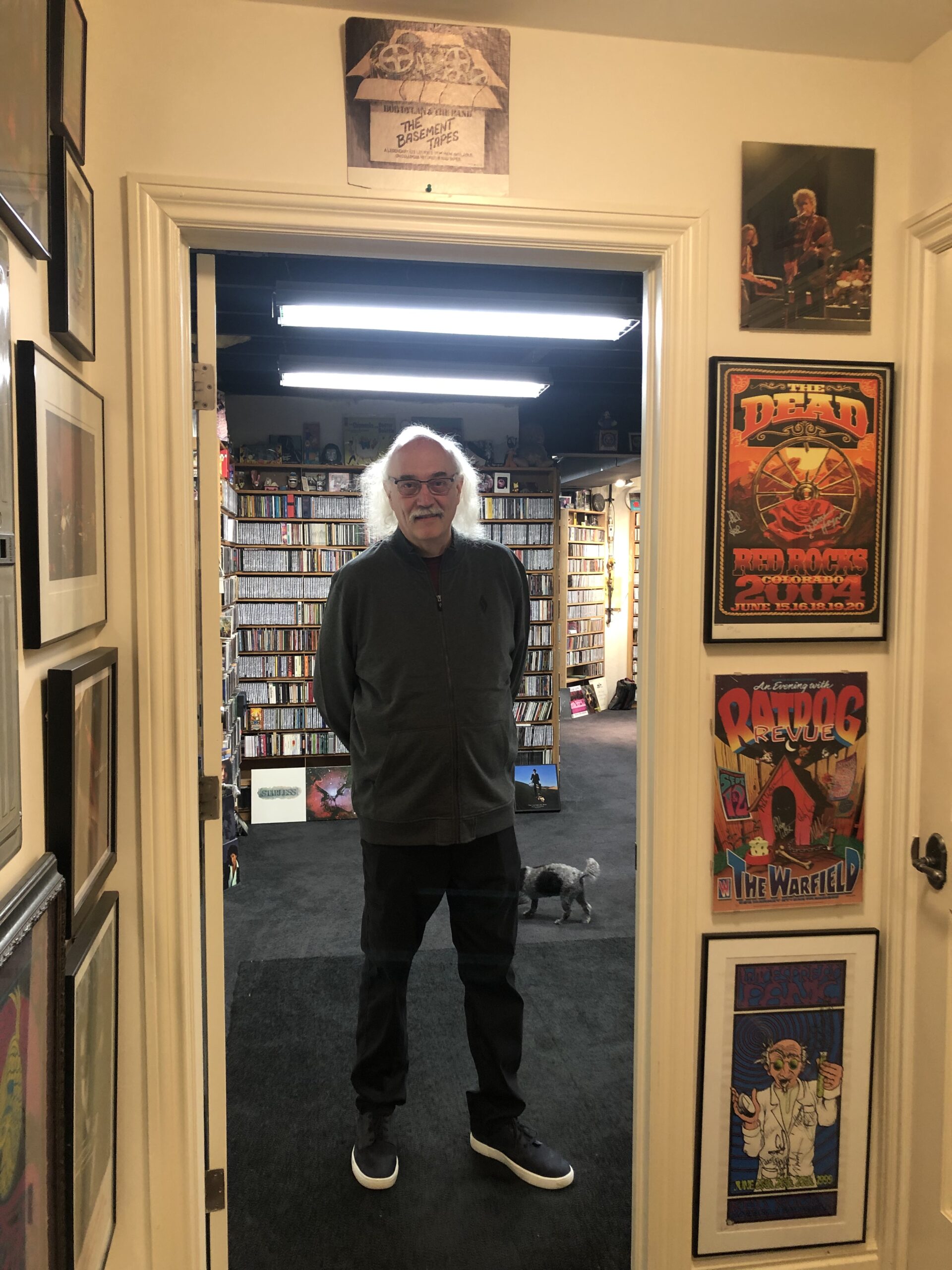
“I moved to Colorado in 1968 and started going to concerts almost immediately. I eagerly grabbed posters, flyers, ticket stubs, advertisements, concert recordings, pretty much any proof I could find that the event happened. In 1988, I started a record store called Twist & Shout, and my collecting of memorabilia went into even higher gear. Over the next 34 years, I had rare access to memorabilia of all types and sizes. Now that I’ve retired, the time seems right to start sharing these things, and the stories that go with them. So, every other Tuesday, I will ask you to Let Me Take You Down (to the basement) to check out some of the good stuff!” – Paul Epstein
